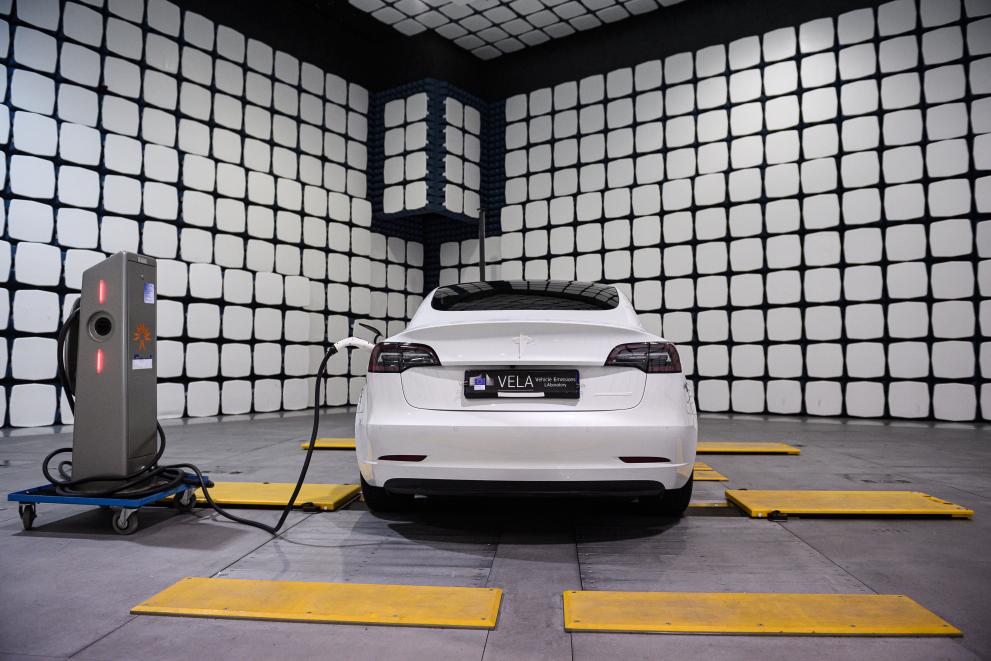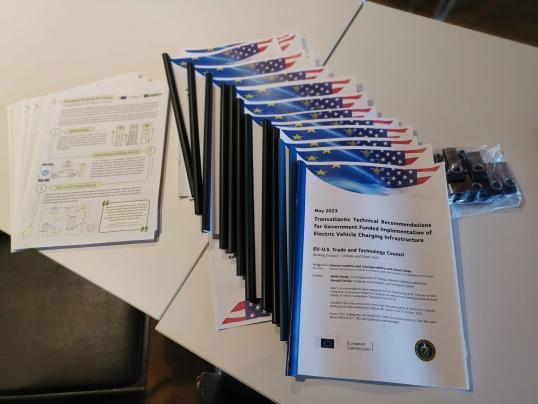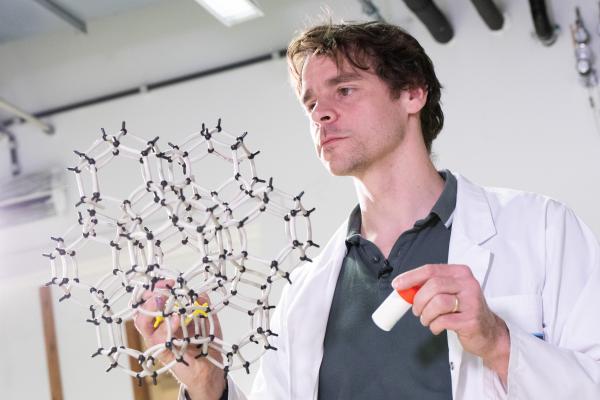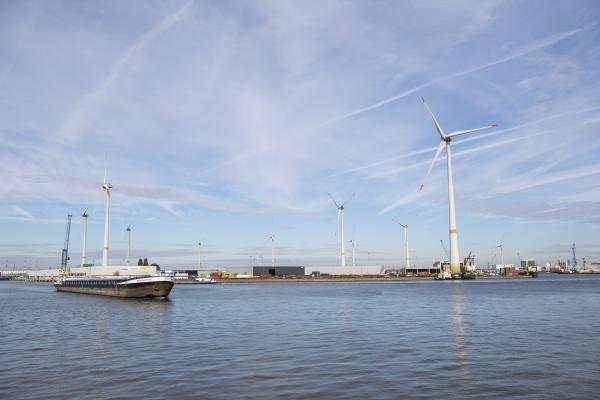
Building on more than a decade of pre-normative research cooperation, the JRC and the US Department of Energy’s Argonne National Laboratory (ANL) have released a set of transatlantic technical recommendations to make EV charging infrastructures fit for future challenges, taking into account the effects of widespread e-mobility on electric energy grids.
Published under the EU-US Trade and Technology Council (TTC), the Transatlantic Technical Recommendations for Government-funded Implementation of Electric Vehicle Charging Infrastructure offer guidance to policy makers and implementing bodies on how best to improve and rapidly rollout smart charging infrastructure for EVs.
The guidance will help set harmonised standards and remove trade barriers, while contributing to the integration of renewables, ensuring stability of power grids and greening the road transport.
The global transport sector is a major polluter, accounting for around a fifth of the world’s greenhouse gas (GHG) emissions. In the EU, following a hiatus due to the pandemic, the transport sector emissions grew to reach a 25% share of the overall EU GHG emissions again. Within this sector, road transport is by far the biggest emitter, responsible for some 70% of the GHG emissions. Therefore, e-mobility plays a key role in decarbonising the transport sector and accelerating the green transition.
The EV market is booming: more than 695,000 new EV were registered in the EU in the last trimester of 2022, a 30% increase in comparison with the same period the year before, according to the Commission’s EU electricity market report - fourth quarter 2022. Globally, there were more than 26 million electric cars rolling in 2022, 60% up as compared to 2021.
A widely available and reliable network of public charging points is required to support the ever-increasing number of electric vehicles (EV) on the road, both in the EU and the US.
New technologies and communication standards will enable to manage demand when many EV are charging at the same time. Developing and implementing cost-effective smart charging infrastructure will thus be crucial in better exploiting and integrating renewable electricity such as solar and wind power, and so to ensure the stability of electric grids. Regional and local authorities have a leading role in the uptake of e-mobility and sharing best practices will be important to bring more certainty to public authorities and private, often government-subsidised, investors.
The technical recommendations also address the need for harmonised standards to minimise trade barriers. Manufacturers and suppliers in the EU and the US could benefit from international standards to cut costs and development times while maintaining their competitiveness across global markets and fostering innovation. Developing consumer- and grid-friendly charging solutions requires further pre-normative research and common testing methods, too.
Experts from the JRC and ANL identified necessary joint Research, Development and Demonstration (RD&D) activities to optimise grid integration, reliability and the energy efficiency of smart chargers. The collaboration will also help to advance new technologies like wireless charging for EVs and charging with bidirectional power flow.
Background information
The EU and the US established the EU-US Trade and Technology Council (TTC) in June 2021 to coordinate approaches to key global trade, economic and technological issues based on shared democratic values. The collaboration on e-mobility and interoperability with smart grids between the JRC and the Argonne National Laboratory (ANL) underpins the work on electro-mobility in Working Group 2 “Climate & Clean Tech” of the TTC, co-chaired by the Commission’s Directorate General for Research and Innovation and the US Department of Energy. It supports shared commitments to clean energy and decarbonisation, and the endorsement and further development of international standards for EVs and their charging devices.
Industry experts contributed to the elaboration of the transatlantic technical recommendations at the stakeholders’ workshop on “Smart Charging and Vehicle-to-Grid Integration” organised in October 2022 at the JRC site in Ispra (Italy). The outcomes of this workshop were published on the occasion of the third TTC Principals meeting in the US last December, together with an infographic (PDF) on smart charging cooperation produced for the broader public.
The technical recommendations have been published as a deliverable of the fourth TTC Principals meeting taking place on 30-31 May 2023 in Luleå, Sweden, under the Swedish Presidency of the Council of the European Union.
Related links
Joint Statement EU-US Trade and Technology Council of 31 May 2023 in Lulea, Sweden
Details
- Publication date
- 31 May 2023
- Author
- Joint Research Centre





